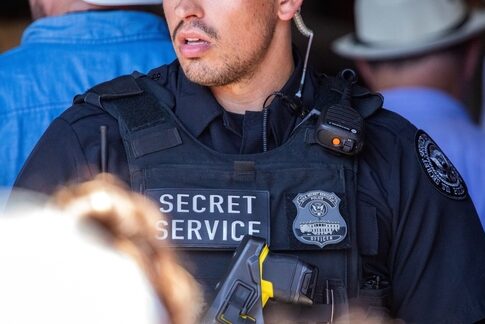In the wake of an assassination attempt on former President Donald Trump at a campaign rally in Butler, Pennsylvania, multiple Secret Service whistleblowers have come forward, raising significant concerns about the agency's preparedness and response. The attempt, which occurred on July 13, left Trump with a grazed ear and resulted in the death of a bystander and injuries to two others.
The shooter, identified as 20-year-old Thomas Matthew Crooks, managed to position himself on a rooftop near the rally, firing several rounds before being neutralized by Secret Service agents. This incident has sparked a flurry of criticisms and conspiracy theories regarding the agency's performance and internal policies.
A foreign cartoon about the Secret Service.
Everyone knows. pic.twitter.com/GX0gR5dysV
— Sebastian Gorka DrG (@SebGorka) July 19, 2024
Eyewitnesses at the rally reported seeing Crooks climb the building, with some alerting authorities before the shots were fired. However, the swift action that followed was deemed insufficient by many, prompting comparisons to the 1981 assassination attempt on President Ronald Reagan. Critics argue that the response to Trump’s assassination attempt was markedly slower and less coordinated.
Amid these criticisms, some whistleblowers within the Secret Service have claimed that their requests for additional resources and heightened security measures for Trump had been repeatedly denied. This allegation has fueled speculation that internal issues, including management decisions and resource allocation, may have compromised the agency's ability to effectively protect the former president.
Watch the three Secret Service women in this video. They look like they are all playing a game of “What the hell are we supposed to do?” pic.twitter.com/VzpQA9b3JE
— Dinesh D'Souza (@DineshDSouza) July 19, 2024
House Oversight Committee Chairman James Comer (R-KY) has announced an investigation into the Secret Service's handling of the incident, demanding testimony from Secret Service Director Kimberly Cheatle. Comer and other lawmakers are particularly interested in understanding how a gunman could access a vantage point so close to Trump without detection.
Furthermore, there are claims that efforts to increase diversity within the Secret Service might have inadvertently led to the hiring of less experienced agents. This criticism is part of a broader narrative that has emerged, suggesting that diversity, equity, and inclusion (DEI) initiatives may have negatively impacted the agency’s operational effectiveness.
Adding to the controversy, misinformation has spread rapidly online. A doctored photo showing Secret Service agents smiling as they escorted Trump off the stage went viral, suggesting the event was staged. However, the original photo, taken by Associated Press photographer Evan Vucci, confirmed that none of the agents were smiling, debunking these conspiracy theories.
The situation has also led to a broader discussion about the Secret Service's current state and its ability to protect high-profile individuals effectively. In the months leading up to the attempt on Trump’s life, the agency faced scrutiny for various failures, including an incident involving an agent assigned to Vice President Kamala Harris's detail who allegedly assaulted a superior.
As the investigation unfolds, the Secret Service will likely face intense scrutiny regarding its policies, training, and resource allocation. The outcome of this probe could lead to significant changes within the agency to restore confidence in its ability to safeguard the nation's leaders.

